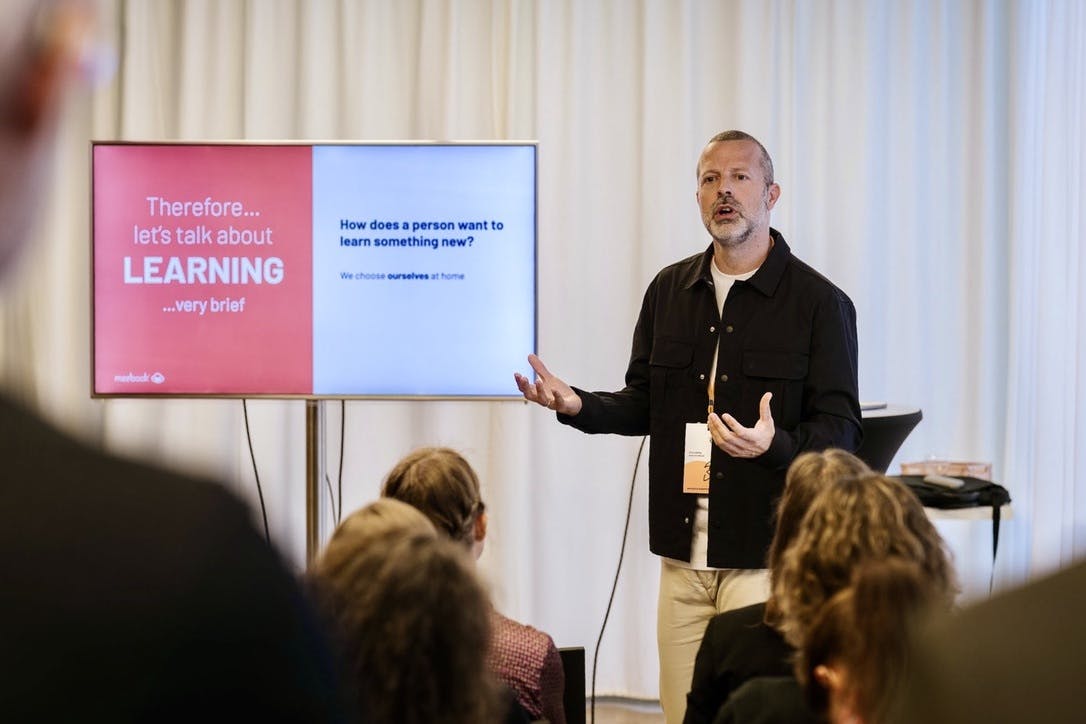Article
Working with AI is working with people
18/4/2022
min read
AI, Business insights

In Visma Resolve, we work with next-level automation, namely optimization, where the goal is not only to save time, but also to improve decision-making. We believe that while the performance and scalability of an AI service are at the core of a successful AI product, they are also only that: part of the core. On top of this, software companies must take the necessary responsibility to do marketing with integrity, sell at the right price, onboard and train customers with confidence and support them wholeheartedly. Only then do customers stand a chance to use these products successfully and generate the AI-promised value for society: hours saved and better decisions made.
As mentioned by Philip Scarampi in “The importance of ethics in Artificial Intelligence”, the Visma mission for AI is to extend human abilities. This mission must be approached in the right way, or it will be perceived as intrusive — comparable to some artificial physical extension of the human body (imagine the need for transparency, explainability, trust and understanding if someone were to extend your body with, say, a third arm). In this blog post, we call for involvement of many people, inside and outside the organization, as a step to achieve organizational AI maturity and a human centric approach to AI and AI products.
Marketing with integrity
“Hoping to appear relevant, businesses love to invoke AI in their marketing every chance they get — but not everyone is impressed. When the hype gets out of control, facts get lost in the haze and the real promise of artificial intelligence regresses into a sci-fi version of snake oil.” – Mariya Yao, Medium.com
What determines a customer’s expectations to a higher degree than marketing? Bragging words and robots with names give the impression of something that resembles general AI. But what is really going on in the back-end? Who stands behind the wording and marketing material, and do they really understand the product and believe in what they are saying? Too high expectations lead to user errors and disappointments. In the long run, it can lead to a more widespread trend of AI scepticism.
We believe that both software companies and customers are better off with honest and accurate marketing of AI services. For us in Visma Resolve, the best place to start is to establish a common understanding and honest belief in the product. Usually this involves some form of education of the marketing department and also involvement in defining value proposition and market material generation. Next, we establish ways of measuring, visualizing and sharing value creation (for instance, time saved) and we collect customer feedback. This way, we can align and re-align on expectations, both internally and externally.
Sell at the right price
Pricing of AI services is not easy for several reasons. First of all, there are often few comparable products in the local market. Second, costs are typically unpredictable, both in terms of computational costs and development costs. In Visma Resolve, we believe that a fair price is based on the value that AI services create for customers. Again, this leads back to an understanding of the product and what it can and cannot do.
Onboard and train customers confidently
Visma Resolve has four different AI services in production, namely timetabling in schools, route planning in home nurse care, kindergarten allocation of children and automatic workforce rostering (you can read more about the services here). For these services, a few users, in for instance the school or municipality administration, utilize our powerful underlying optimization algorithms to optimize the decisions they make on behalf of their entire organization. It is therefore not only users who are being onboarded, but organizations. The onboarding team needs confidence in the product, training in how it is used and experience with what implications it has for stakeholders.
This change management should not be taken lightly. A testimony to this is BCGs 10-20-70 formula for dividing investments in AI projects, where 70% of the investments are concerned with the organizational adoption of the AI service. Real life examples that we have seen with Resolve services include how teachers and students at schools change habits to accommodate weekly differences in their timetable, or how municipalities in Sweden communicate with employees and citizens when they determine employee rosters with AI. In these cases, it is important to maintain the trust and user control throughout.

From BCG Gamma: Making AI Real for Business
Support your customers wholeheartedly
If AI add-ons were a fantastic green button that automated and optimized everything perfectly, there would not be any need for a support function. The reality, however, is that advanced automation products require configuration in order to capture specific constraints and objectives and manual polishing of the autogenerated suggestions to get to the best possible result. Customers might get stuck, or fail to understand the user interface or the output from the automation. The user-experience must of course be improved over time to increase the usability and transparency of the product. But in our experience, a skilled and scalable customer support function is still absolutely necessary to accommodate these users and lead the way to value creation.
To extend human abilities is about people
All of the aforementioned steps require understanding and alignment among people both in the delivering and receiving organizations. Succeeding with AI is not just about hiring a niche team of AI developers; it requires organizational maturity and leadership. Working with AI is working with people. That’s what makes it so interesting!
If you are interested in learning more about how Visma works with AI in order to help people and society thrive, feel free to read more here: AI at Visma. Any reactions or questions may be directed to Jacob Nyman at jacob.nyman@visma.com.

About the episode
Jacob Nyman
As AI Manager, Jacob leads optimization services within school and workforce management at Visma. With a background in Industrial Economics, Technology Management, and Computer Science, he is now dedicating himself to unleashing the potential of AI and optimization as cloud services in mission-critical software.
Artificial intelligence (AI),ai,Automation,Insights: Optimisation,Optimization,TechZone
Voice of Visma
Welcome to the Voice of Visma podcast, where we sit down with the business builders, entrepreneurs, and innovators across Visma, sharing their perspectives on how they scale companies, reshape industries, and create real customer value across markets.
Jacob Nyman
As AI Manager, Jacob leads optimization services within school and workforce management at Visma. With a background in Industrial Economics, Technology Management, and Computer Science, he is now dedicating himself to unleashing the potential of AI and optimization as cloud services in mission-critical software.

















































































































































































































































